IOM Yemen: A Mother’s Love Knows No Bounds
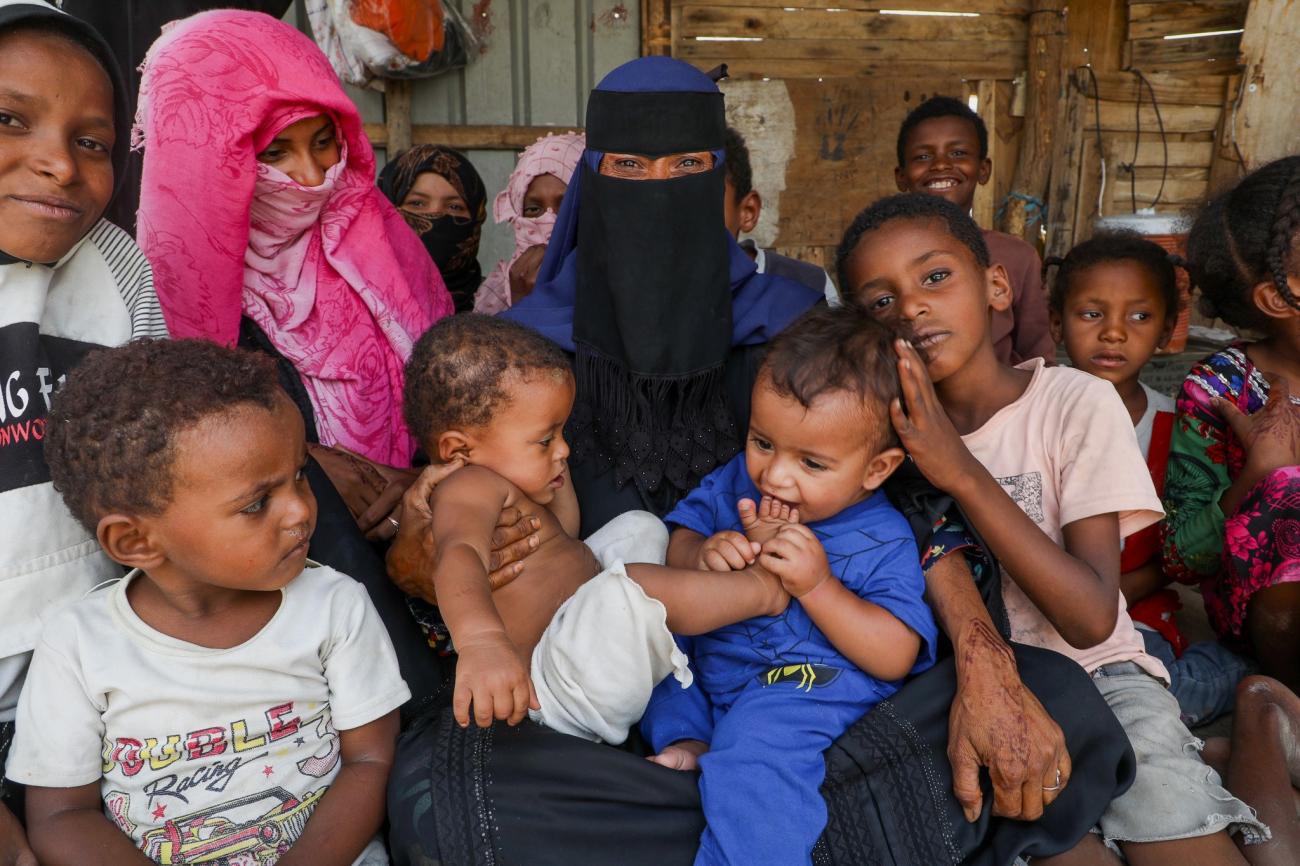
--
Ma’rib, Yemen
What would you do if you found a newborn baby? This is the remarkable story of two women on the move, Tayto and Darwisha, who faced that very situation in Yemen. In an extraordinary twist of fate, both women discovered abandoned newborns shortly after giving birth to their own children – Tayto’s first and Darwisha’s fifteenth.
Two years ago, Tayto boarded an overcrowded boat in Obock, Djibouti, with 150 others, many of them women like herself seeking a better future. Leaving her family behind in Ethiopia, she could have never imagined her journey would lead her to a migrant settlement in Ma’rib, Yemen.
Ma’rib, with its resilient and ever-changing migrant community, soon became Tayto’s new home, where she found work as a housekeeper. However, just three months after settling in Yemen, she discovered she was pregnant.
Shortly after, she lost her job. Without a steady income, Tayto faced the daunting reality of raising her child alone in a foreign land. Despite the challenges, Tayto’s heart stayed open. When she came across a little girl whose parents had vanished, she immediately took her in, offering her a safe and loving home.
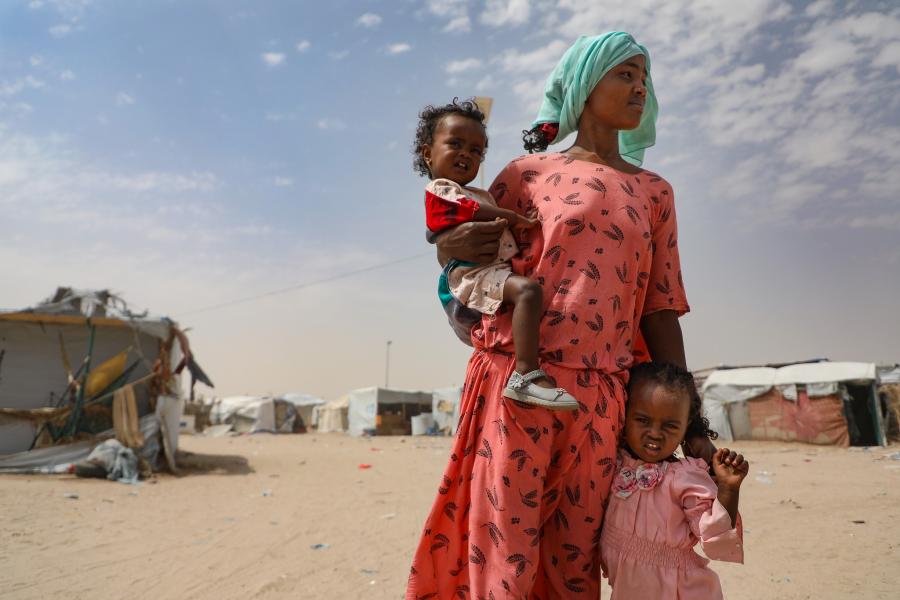
Tayto admits that caring for two children without family support, in relentless heat and without electricity, has been an ongoing struggle. Yet her determination has never wavered. In many cultures, including Tayto’s, the responsibility to care for others – especially children in need – is deeply rooted in tradition. However, acts of kindness like hers often come at great personal cost, stretching limited resources even further.
Amid these challenges, the International Organization for Migration (IOM) works tirelessly to provide assistance. Through vulnerability screenings, IOM identifies the most pressing needs and offers protection and case management support. For female-headed households like Tayto’s, IOM ensures the assistance addresses specific vulnerabilities to reinforce resilience where it is needed most.
Yet even with support, the risks in the settlement are ever-present. Last June, Tayto’s fragile sense of stability was shattered when a fire broke out in the crowded community. The flames spread quickly, fueled by the densely packed shelters and windy conditions. Residents tried desperately to contain the blaze, but the fire was relentless. By the time it was finally subdued, Tayto’s shelter had been reduced to ashes.
In the aftermath, IOM stepped in to help those affected. Tayto received dignity kits, hygiene supplies, food, and emergency shelter, which helped ease the immediate burden. Still, the trauma lingered, adding to the challenges she already faced.
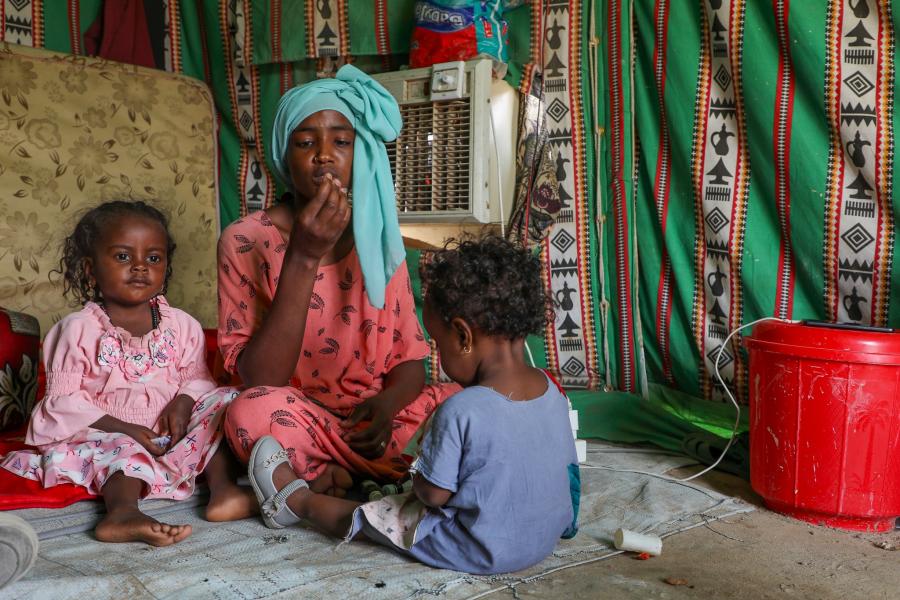
Like Tayto, Darwisha’s life was turned upside down when conflict and airstrikes forced her to flee from Al Hodeidah to another corner of Ma’rib, where she has lived for the past five years. Although her resources have been stretched thin, she found a sense of safety in the displacement camp.
A mother at heart, Darwisha has always dreamed of having a large family. Today, she is the proud mother of 15 children. “Keeping track of everyone is not always easy,” she laughs, “but having so many kids means they always have each other’s company and care.” To support them, Darwisha collects and sells plastic bottles, earning a modest income.
On one of these trips, just days before giving birth to her youngest, Darwisha made a discovery that would change her life forever. In a ditch, hidden beneath thorns and branches, she found a newborn, still covered in blood, with a tiny cap shielding his face. The pit was in a windy, desolate spot where stray dogs prowled nearby. Miraculously, the baby was unharmed.
Darwisha quickly alerted the local community and shared her contact information, hoping a relative would come forward. Many strangers showed up, some offering money to take the baby in. Relying on her instincts, Darwisha couldn’t bring herself to let him go to someone she didn’t trust. “As a mother, I felt responsible for protecting him,” Darwisha explains.
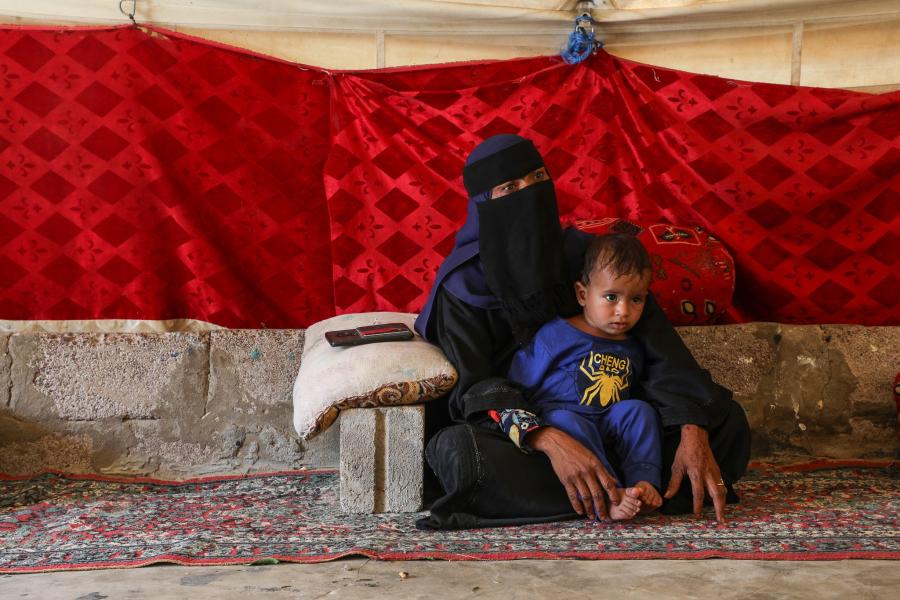
They named him Daif Allah, which means ‘God’s guest’, convinced that divine intervention had led him to them. Their newborn daughter was named Anood, meaning ‘strong’ in English, a fitting name for the resilience they shared.
This resilience was put to the test when conflict forced Darwisha’s family to flee their home. In those critical moments, they received vital assistance through IOM's Rapid Response Mechanism, which provides immediate, life-saving support to families displaced by crises. Within 72 hours, Darwisha’s family received a kit filled with essential relief supplies.
Darwisha also received emergency cash assistance, which allowed her to purchase essential items from local markets, giving her the freedom to prioritize her family’s needs. With IOM’s support, the family received a transitional shelter and Darwisha was able to make improvements, upgrading the shelter and latrine.
Without the support of women like Darwisha and Tayto, many of these children would face abandonment or other serious risks. To prevent this, IOM’s Protection team offers unaccompanied children a safe haven in community-based care facilities, where they receive health services, protection, and mental health and psychosocial support.
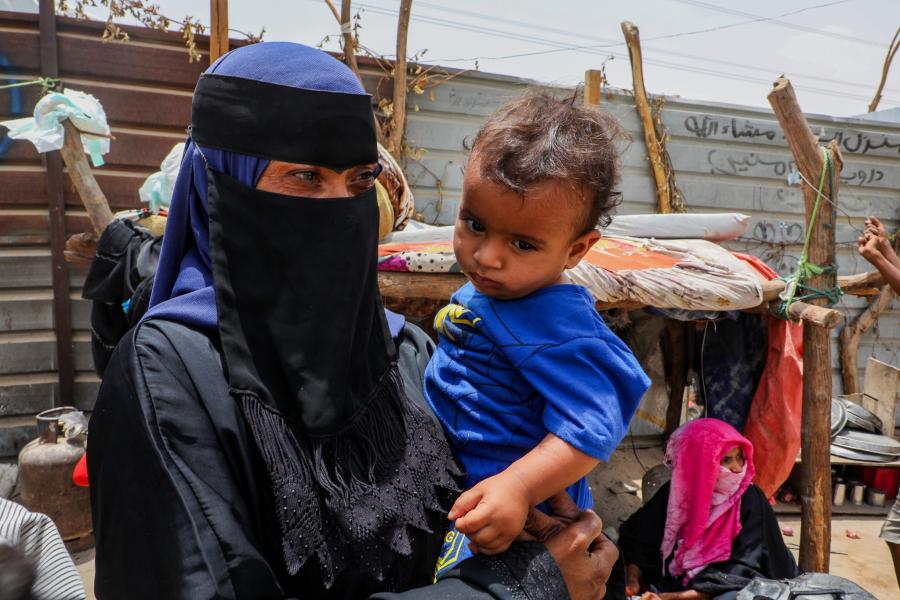
It has been over a year since Darwisha found Daif Allah, but she has always considered him her own. When her youngest daughter was born, she nursed both infants, watching them grow side by side, surrounded by their siblings and the close-knit support of their family.
Darwisha admits that her days of having more children are behind her. Her poor eyesight, kidney stones, and anemia have taken their toll, and raising 15 children is already more than than she ever bargained for. While some of her children still go to school, the older ones have moved out and started families of their own.
One day, when Daif Allah is older, Darwisha plans to tell him the story of how he came into her life and let him choose his own path, whether that means staying by her side or pursuing his own dreams. “All I want is for my children to be happy and safe,” she says.
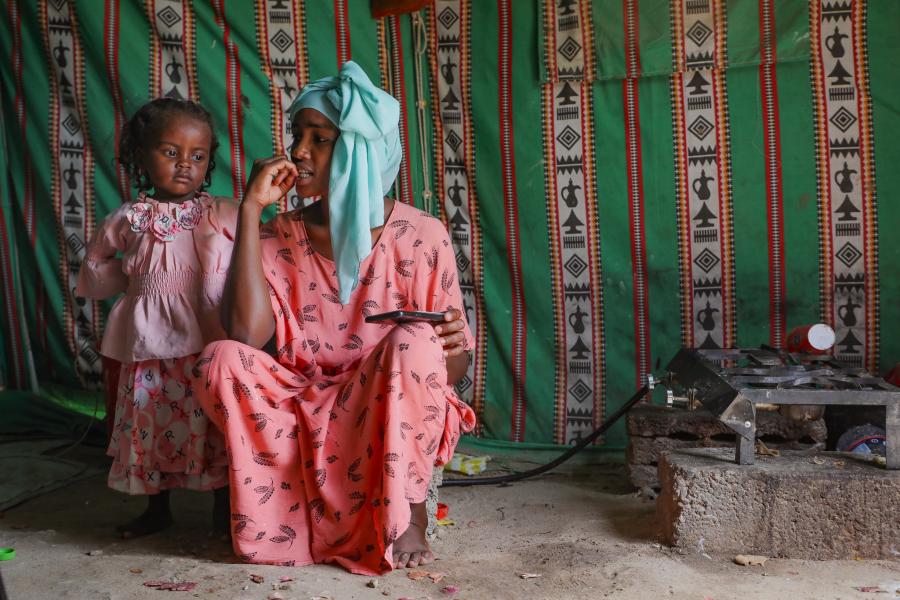
IOM’s Protection services in Ma’rib are funded by EU Humanitarian Aid (ECHO) and USAID’s Bureau of Humanitarian Assistance (BHA). IOM’s RRM and Multi-Purpose Cash Assistance (MPCA) in Yemen is funded by BHA, ECHO, UN’s Central Emergency Response Fund (CERF), and Qatar Charity.
This story was written by Monica Chiriac, Media and Communications Officer with IOM Yemen.



